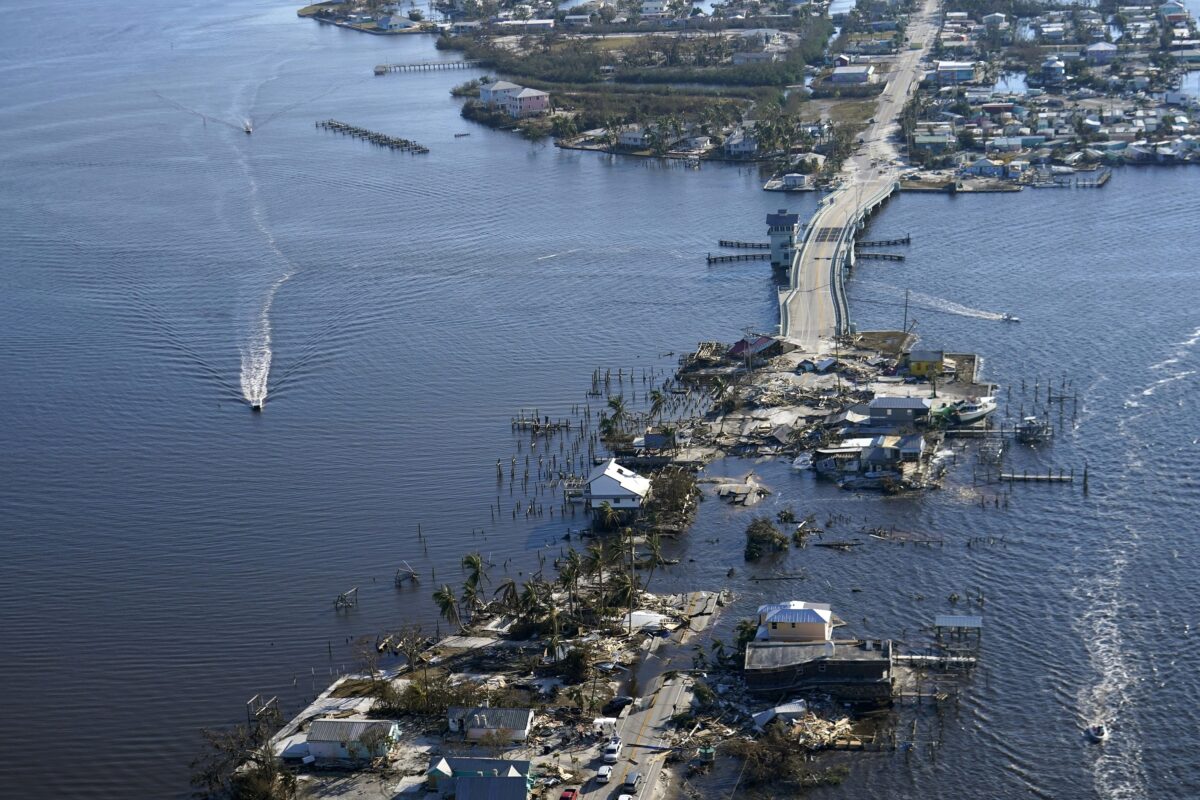


State Farm announced on July 13 it would recommit to providing property insurance to Floridians. The decision came just one day after one of its competitors announced its exit from the state.
“State Farm plans to continue our substantial presence in the Florida insurance marketplace. Our current plans include a commitment to responsible growth so that we can maintain the financial strength to deliver on our promises to our customers,” State Farm spokesman Roszell Gadson said in a statement.
“We are encouraged by the recent insurance reforms and efforts to curb legal system abuse, and we will continue to work constructively with the Florida Legislature and the Office of Insurance Regulation to improve the marketplace on behalf of our Florida customers.”
But State Farm is one of 20 companies that are still willing to provide property insurance to residents of The Sunshine State.
“Currently, there are 18 Florida residential insurers on the state regulator’s watch list due to concerns over their financial health,” Mark Friedlander, a spokesperson for Insurance Information Institute, told CNN.
Over the past 18 months, four home insurance companies have announced their voluntary withdrawal from Florida, according to Mr. Friedlander. Another seven companies were declared insolvent, and 15 more announced they stopped writing new business.
The latest insurers to announce their departure are Farmers Insurance and AAA.
“Affected customers will receive notifications detailing when their coverage will end and will be advised of options for replacement coverage,” Farmers announced on July 12.
“Farmers offers insurance through several different brands, and this decision applies only to policies issued through our exclusive agency distribution channel.”
Farmers’ statement said that 70 percent of Floridian policies will see “no impact,” and the affected customers will receive a notification informing them when their coverage will end and the replacement coverage options the company advises.
AAA made its announcement to end business in Florida on July 15, telling The Epoch Times that it made the “difficult decision to not renew a very small percentage of higher exposure homeowner’s policies.”
“Evaluating risk and exposure management is a common part of the insurance industry,” the spokesperson said. “The catastrophic 2022 hurricane season drastically raised operational costs for providers.”
But many Floridians have already turned to what the governor’s office calls “the state’s insurer of last resort”—Citizens.
“Florida’s property insurance market has been chaotic since 2007 when bad public policy forced insurers to flee Florida,” Governor Ron DeSantis’s press secretary Jeremy Redfern said in a statement sent to The Epoch Times.
“Since 2007, the main cost driver has been excessive litigation.”
Only 8.6 percent of U.S. property insurance claims in 2019 were filed in Florida, according to Mr. Redfern, but Florida is also where more than 76 percent of property insurance litigation in the United States occurred that year.
Every year, Florida is at risk of being hit by destructive hurricanes and tropical storms. Last year, Hurricane Ian made landfall in Southwest Florida, causing tens of billions of dollars in damage.
But “frivolous litigations” and their costs continue to get in the way of both the policyholders and the insurance providers.
“Many of the insurance companies in Florida are still saddled with the tailing litigation stemming from recent hurricanes, most notably Hurricane Irma. But due to implemented reforms, we are seeing some new companies entering the market,” said Mr. Redfern.
The Office of Insurance Regulation (OIR) operates the “Citizens Property Insurance Corporation [Citizens] Depopulation Program” every year. Its objective is to recruit property and casualty insurers authorized to operate in Florida to assume policies in an attempt to transfer them back into the private market.
Seven companies are already participating in the program. Each company must meet OIR standards and prove that it properly pays customer claims.
So far this year, according to OIR, the number of policies being requested by private insurers is more than the total number requested in 2022.
More than 90,000 policy transfers have already been approved, with another 184,000 requested to be assumed in October.
The governor’s office sees a direct correlation between the number of policies returning to the private sector and the legislative reforms being passed in Tallahassee.
Mr. DeSantis has called several special sessions and signed numerous pieces of legislation over the past four years to improve the property insurance landscape, according to Mr. Redfern.
In 2021, SB 76 changed the way attorney fees are awarded and disputed in Florida insurance cases.
In 2022, the governor held two special sessions in Tallahassee. The first was in May, during which time he signed SB 2D into law. The second was in December, during which he passed SB 2-A into law.
SB 2D provided $2 billion in insurance relief through the Reinsurance to Assist Policy and $150 million for the My Safe Florida Home Program.
It required insurance companies to provide reasonable explanations and more access to information for policyholders whose claims were denied and prohibited companies from denying coverage based solely on the roof age—if it was under 15 years old, or had at least five years left.
SB 2-A sought to “disincentivize frivolous lawsuits” by eliminating one-way attorney fees and improving OIR’s ability to complete post-hurricane conduct examinations of property insurers.
“Reducing the burden of excessive and predatory litigation will help bring down costs for homeowners,” Mr. Redfern said.
As the climate for insurance companies continues to improve, the OIR is seeking private companies that will be willing to absorb Citizens’ policies.
The deadline for companies to take over policies in November is July 28, and OIR projects more policies will be taken up.
“Even the most aggressive reforms will take time to affect the insurance industry,” Mr. Redfern said. “The 2021, 2022, and 2023 legislative efforts will be effective.”
Jack Phillips and Tom Ozimek contributed to this story.



